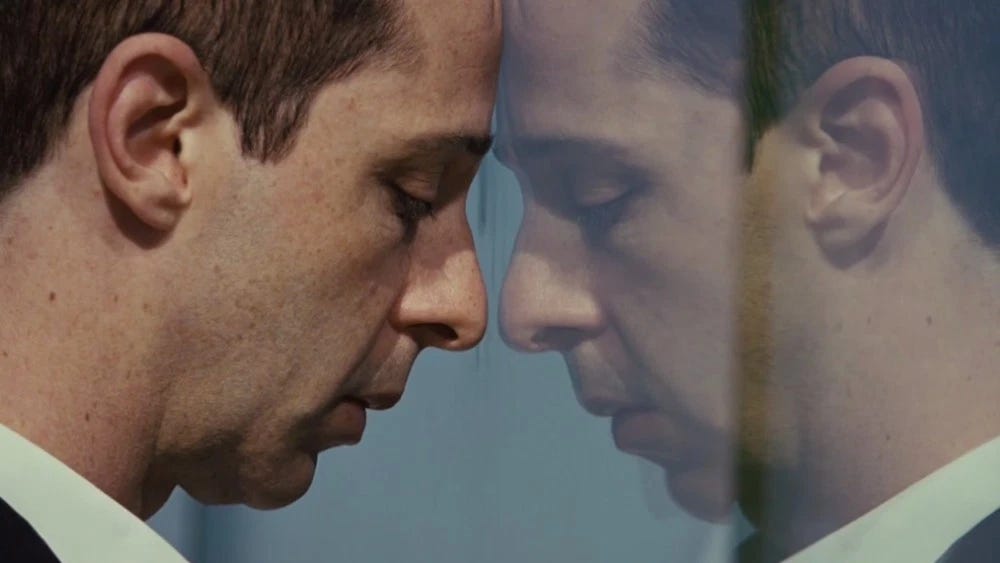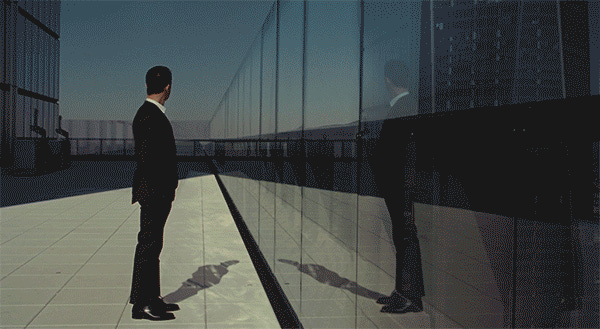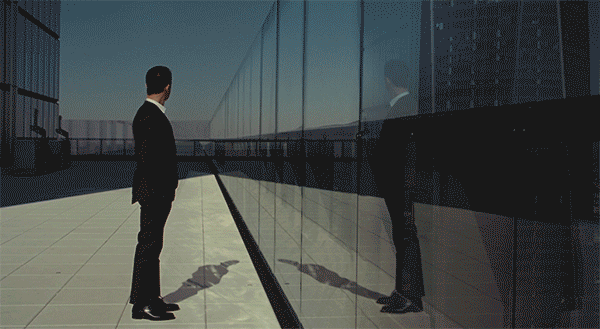Strange, isn’t it, how we warm to the characters of Succession. What with the ostentatious wealth, the relentless competitive rudeness, the skin-crawling awkwardness. So many viewers baulk at first contact with these people that the show itself seems designed to repel. Yet we’re sucked in, telling ourselves that horrible people can be so very, very compelling…
But sometimes I wonder, could I come to feel so drawn to such people if I encountered them in real life? Would I enjoy the monstrousness of Rupert and James Murdoch, or Donald and Ivanka Trump, or any other real-life families the Roys may be based on?
My answer is of course, always, fuck no. But then, why is that? I don’t know those people. I’ve never met them and they’ve never hurt me directly. And while I might disagree with them, they are, like me, part of humanity. They - unlike Kendall, Shiv, Roman and Logan, whose names alone suggest a set of identities precision-tooled to offend my sensibilities - do actually exist. So why do the real people seem like cartoons, easy to dismiss, while the invented characters seem fully-rounded humans who draw us inexorably in? What does it say about those particular real people? What does it say about Succession’s writers? Actually, what does it say about me?
Because it is fiction, Succession makes us care by showing us the characters’ vulnerabilities. Because it is very good fiction, Succession works hard to make sure those vulnerabilities are well hidden, wrapped up inside contradictions, just as they are in real life, making them harder to unpick yet more inviting to work out, and more rewarding when we do. We’re highly attuned to contradictions, I think. You might say they make us who we are. Even our attitude to contradictions is contradictory - we indulge our own but deny others the right to any. We pick up on contradictions almost like radar signals, something to instinctively fight off. Hypocrisy incoming.
But in fiction it’s different. We treat them not as radar but as flares from behind enemy lines. A cry of help, the cause for a rescue mission. An appeal to our humanity we cannot ignore.
Succession, like all very good fiction, is as much about the viewers as the characters; it’s fuelled by the contradictions in both. Our horror turns to sympathy, even as the Roys remain objectionable. We care about their fate because of, not despite, who they are. We find this surprising only because we have a blind spot about blind spots. Even if we don’t realise it, fiction is where we go to learn the truths we would otherwise miss about ourselves and each other.
Do you remember the Safe Room episode, in Season 2? It’s the one with the gunman loose in the building. It’s the one that really got under my skin. Away from the set-piece scenes, like Boar On The Floor, or the tense family conversations, which are extended and theatrical and often quite painful to watch, this episode contains moments, often short and wordless, that only television can do, and that place the family fireworks in a very human context. It’s an episode that shows how good the writers are, and how strange and complicated and emotional these characters, and by extension all of us, are.
It’s set mostly at Waystar HQ. It’s Shiv’s first day. Kendall has persuaded the Pearce CEO to come in. Logan wants to buy Pearce so he can fend off the hostile takeover Kendall put together when he was trying to wrest control from his Dad. Then there’s the gunman. In crisis, protocol creates its own conflict, with Logan and Shiv taken to a safe room as plush as it is secure, while Tom and Greg, both extended family, both inveterate climbers, are placed in what looks like an IT training room. Shiv and Kendall hug.
The most significant event, though, is the one we’re told could happen, but doesn’t.
In the opening moments of the episode we see Kendall climbing the stone steps that lead to the roof. Only on a second viewing did I notice we were watching CCTV footage. Once there, he leans over the barrier, looks out over Manhattan, looks down. He is a broken man. The tragic experience of a few months before has him forcibly back under his father’s control, his spirit and independence dissipated. He is a man of immense privilege and wealth and no purpose. To the outside world, the one he surveys from above, he is a full-blown Master Of The Universe. To us, he is a man almost entirely uninvested in his own existence. It begins to dawn on us what it is he may be thinking.
That image. The ambiguity; the blend of doubt and success, of power and perspective; the shot from behind; the unknowable mystery of the man and his relationship to his domain and the world at large - well, it reminded me of something....
And alongside this existential sweep, panic. With Kendall yet to make it to the safe room, his father seems uncharacteristically agitated. Logan keeps asking aides where his son is - there’s a gunman in the building, after all. But Kendall is also currently holding Logan’s pills; Logan’s concern may well be for his son’s safety, or it could be for his own. What Logan is truly thinking, what he really intends - well, it’s hard to tell. All we can infer is that, with the crisis putting Kendall close to his father again, the confused, twisting strands of love, loyalty, control and responsibility we’ve come to recognise with this family have knotted inevitably around the son in new, complicated ways.
In the final scene, we realise the extent of Logan’s all-seeing hold over his son. As Kendall ascends once more to the roof, he finds a 10 ft wall of glass around its edge.
No more can he lean over. No more can he look out at all he surveys, not without having to confront his own hollow reflection. The viewer must confront something too: in those moments of rooftop isolation, Kendall had not been so alone as he might have thought. It’s now that the use of CCTV dawns on us. With just a few seconds, and zero dialogue, the writers show us that Logan saw this. Or at least, somebody saw this and told Logan. No corner of his business escapes Logan Roy. We’re often told just how much he knows, how many steps ahead he sees. Given the brewing political investigation into corporate mismanagement, and who knew what when, this is significant. And here he is showing that once again his family is his business is his family.
All in a scene that lasts for sixty seconds.
The glass wall is great TV, because it shows us visually something that might sound trite when rendered in dialogue. The glass wall is also Succession in microcosm, because in it we see the contradictions of two characters and the contradictions that fuel their relationship with each other. Logan cannot love Kendall without dominating him. Kendall is protected, but boxed in. Every character in Succession is monstrous because every character is suffering terrible pain.
As viewers, we register all this without perhaps thinking about it too much. That’s what fiction does - connects us with emotional truths dressed up as plotlines. Cliffhangers make the best bridges. Few of us have lived Kendall’s life, yet in this moment he has our utmost sympathy. We are, for a short wordless moment, him. We might not have engaged in a hostile takeover of a multi-billion dollar corporate our father founded but we do understand, perhaps, what it’s like to crave recognition and not receive it, or to receive recognition and not think ourselves worthy of it, or to desire something but fear the risk involved in taking it, or to want to protect those we love yet not know how to talk to them, or to let the perception of others override our instinct to care for those who really matter, or to think we know what’s best for someone, or to confuse success with happiness, or to feel empty, or sad, or to see our situation as overwhelming, or any other emotional note that comes off this scene like a punch to the chest.
Emotions, like the glass wall, can hold opposing meanings at the same time. Each of us can feel that what defines us also traps us. We can feel that what we say we want is not what we want. Or that what we want is not what we need. We may feel any of these with great intensity and not even realise it. We are complicated yet driven by profoundly simple impulses. Love. Fear. Excitement. Comfort. Control. Belonging.
It’s often said that fiction teaches us empathy. The more important issue is, how to transpose the empathy we learn from fiction to the real world. To real people. To people who aren’t like us because their difference turns them into cartoons, or monsters. In real life, we don’t have the benefit of knowing the full person. We rarely see someone’s inner world or quiet moments. They mask their vulnerabilities, embarrassed to feel what they feel, or scared to say what they want. They fend us off with meanness or hide behind aggression. They confuse us, acting differently depending on who they’re with. Even if we know them well, they may still project their own guilt or shame onto the people they love most, making us feel judged or unloved.
My work involves observing people and attempting to understand them so that businesses and brands can serve or communicate with them better. It’s amazing, though, how quickly and invisibly, even in an area where it’s our job to understand, a group can be ‘othered’ by people paid to do the opposite. The group-think and tribalism that underpin this behaviour is another post entirely, but it underlines the value of fiction as a guide for the work I do. Instead of a crowd, there’s a person. In place of a cartoon, there’s someone I might emotionally connect with. In fiction we don’t expect consistency or congruence but embrace the contradictions, conflict and change at the heart of the person. We warm to them because of it. And moments like the glass wall crystallise how rewarding it can be. It’s more powerful when we work it out for ourselves.
In real life, people rarely tell us their emotional truth. But the glass wall is a reminder that sometimes they might show us. If we’re prepared to look long and closely enough, we might even see it.








Well put, thanks James. Like the blog. Just discovered 👍 Hope you are all surviving lockdown 3.0! X
Lovely post! bravo